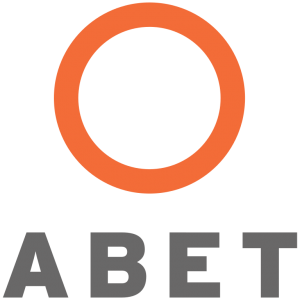The major offers a curriculum based in math, science, and engineering to provide a well-rounded education for the many different engineering opportunities available upon graduation.
Visit the CSU Admissions page now to apply to the university and our program!
Interested in transferring to Chemical and Biological Engineering? Find transfer requirements here.
Suggested program plan
The CBE curriculum is designed so that the courses from one semester serve as the foundation for those taken in subsequent semesters. This relationship among courses is expressed in the course catalog as lists of prerequisites courses.
Understanding the importance of these prerequisites is important for planning which courses will be taken when, especially when one considers that CBE courses are offered only once per year (i.e., either in the fall or the spring semester).
Of particular importance in the first two years of the CBE program are the requirements for math (MATH) and physics (PH) courses.
Course requirements
Foundational courses
- Calculus and Differential Equations (4 semesters)
- Introductory Chemistry (2 semesters, with labs)
- Organic Chemistry (2 semesters, with lab)
- Physics (2 semesters, with labs)
- Intro to Matlab (CBE160)
- Intro to Chemical and Biological Engineering (CBE 101)
Major-related courses
- Material and Energy Balances (CBE 201)
- Intro to Biological Engineering (CBE 205)
- Chemical Engineering Thermodynamics (CBE 210)
- Molecular Concepts and Applications (CBE 310)
- Chemical Reactor Design (CBE 320)
- Heat Transfer and Thermal Separations (CBE 332)
- Momentum Transfer and Mechanical Separation (CBE 331)
- Process Simulation (CBE 330)
- Momentum and Heat Transfer Laboratory (CBE 333)
- Equilibrium-Staged Separations (CBE 341)
- Process Control and Instrumentation (CBE 430)
- Rate-Controlled Separations (CBE 442)
- Mass Transfer and Separation Laboratory (CBE 443)
- Chemical and Biological Engineering Design I and II (CBE 451 & 452)
- Professional Development Seminar (CBE 393)
Electives
Students choose a bioscience science elective course (such as microbiology or materials science) as well as 6 credits of technical elective course, and 3 additional credits of engineering classes.
University core classes
In addition to the courses listed, university core classes and electives will appear in the curriculum.
B.S.Degree Checklist
Download our checklist of credits required for each year of your undergraduate education.
Objectives and program details
Program educational objectives
Student outcomes
CBE opportunities
Laboratory procedures
Program educational objectives
The Chemical and Biological Engineering Program at Colorado State University will empower graduates with the educational foundation to:
- Be highly successful, as defined by accomplishments, advanced certifications, and job satisfaction, in chemical and biological engineering practice, post-graduate education, or other careers making use of engineering knowledge.
- Be identified for both their mastery of fundamental chemical and biological engineering principles and their creative application of those principles to the solution of problems across a diverse range of career disciplines.
- Be recognized as critical, creative and independent thinkers who use their technical expertise and leadership to address the needs of society and advance their fields of expertise.
- Be recognized for their effectiveness in teamwork, communication, and service to society through their professional contributions.
- Hold paramount health and safety of the public and the environment.
- Demonstrate the highest standards of professional, ethical, and civic responsibility in all endeavors.
- Demonstrate continued professional growth through a commitment to lifelong learning.
Student outcomes
Graduates of the undergraduate Chemical and Biological Engineering programs will have:
- an ability to identify, formulate, and solve complex engineering problems by applying principles of engineering, science, and mathematics
- an ability to apply engineering design to produce solutions that meet specified needs with consideration of public health, safety, and welfare, as well as global, cultural, social, environmental, and economic factors
- an ability to communicate effectively with a range of audiences
- an ability to recognize ethical and professional responsibilities in engineering situations and make informed judgments, which must consider the impact of engineering solutions in global, economic, environmental, and societal contexts
- an ability to function effectively on a team whose members together provide leadership, create a collaborative and inclusive environment, establish goals, plan tasks, and meet objectives
- an ability to develop and conduct appropriate experimentation, analyze and interpret data, and use engineering judgment to draw conclusions
- an ability to acquire and apply new knowledge as needed, using appropriate learning strategies.
CBE opportunities
The Department of Chemical and Biological Engineering (CBE) at Colorado State has features that set it apart from programs at other universities.
The small class size and high teacher-to-student ratio facilitate personal attention to each student’s education. The small class size also allows for a close-knit student body. The AIChE student lounge is frequented by many of the students as a gathering place to meet, talk, and work on assignments.
The faculty all have active research programs, there are opportunities for undergraduate research experience in CBE. Opportunities for leadership abound within the student chapter of AIChE, active on the Colorado State University campus, and many other campus organizations.
Laboratory procedures
In addition to multiple laboratory experiences in the sciences, undergraduate chemical and biological engineers at Colorado State take two semesters of Unit Operations Laboratory.
These courses provide hands-on experience with pilot-scale chemical and biological engineering equipment. The experiments are closely coordinated with classroom material to provide the reinforcement needed for a thorough understanding of fluid flow, heat and mass transfer, chemical reactor design, and process control.
Many of these well designed experiments are connected directly to the latest computers by custom Labview software. This allows for real-time data acquisition and analysis.

The Chemical and Biological Engineering program is accredited by the Engineering Accreditation Commission of ABET, www.abet.org.
